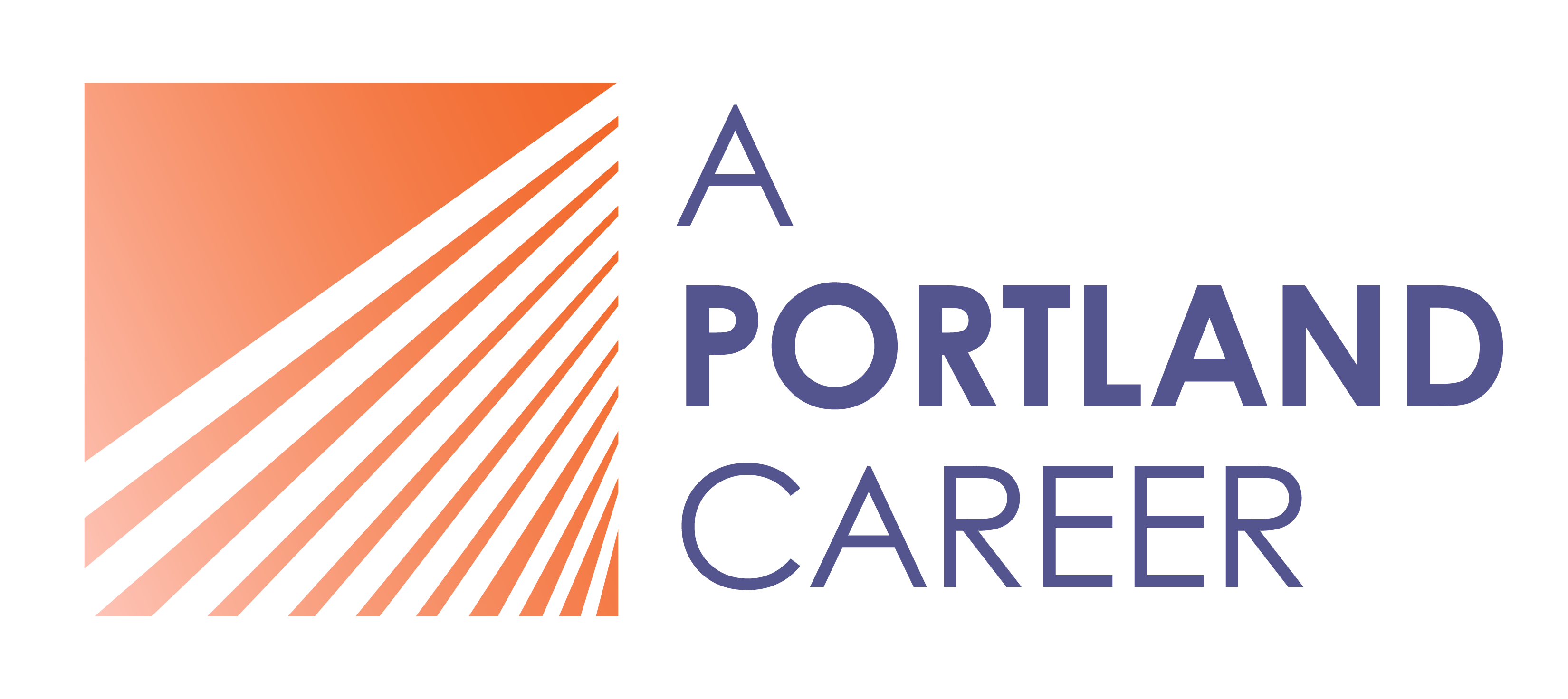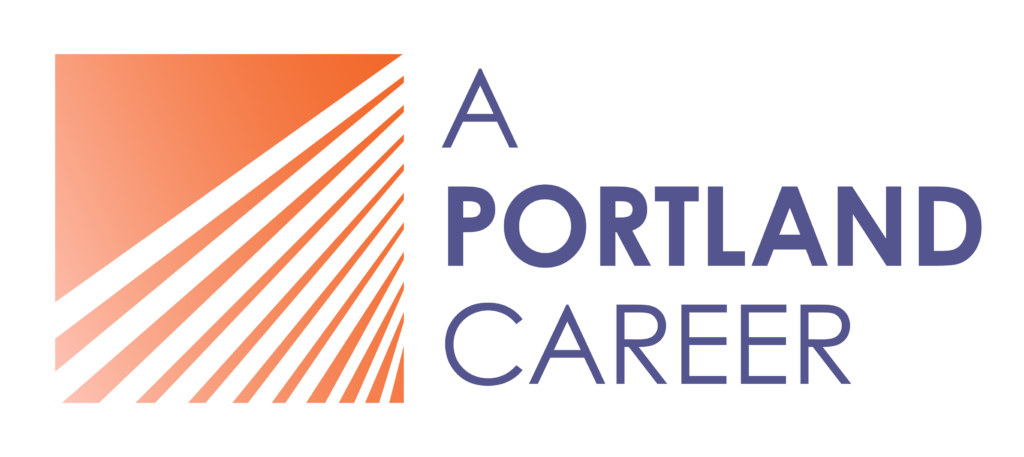Faith, nature, and mindfulness can benefit your job search: discern your calling, celebrate your gifts, and accept the uncertainties in the process.
A career expert’s reflection on how to start assessing your career options.
Is It Time For A New Career Path?
By A Portland Career, and edited by Dan Hahn, M.S., Jelena Grove and JD Duran
Time for a new job? Schedule a consult with us, and get the career advice you need to get started in your job search

“It isn’t normal to know what we want. It is a rare and difficult psychological achievement.”
-Abraham Maslow
Ever wonder why adults love to ask kids, “What do you want to be when you grow up?” I have a theory. It’s because most of us have not actually fallen into the work we truly love. We marvel at the possibility of existing once again as a child with a blank slate, able to imagine the endless career choices available to us, and what new adventures might await.
While we encourage (and vicariously relish) these flights of fancy with children, we have a tendency to shut down these musings after high school––both in ourselves and in our friends and co-workers. We dismiss them as whims with no toehold in reality or as too much bother to really pan out. I’ve never fully understood this. While I know there are hard realities to life (I’m a native Midwesterner of mostly German extraction, so stability and pragmatism are deeply ingrained in my subconscious) staying in work that is stifling and soul-crushing just doesn’t make good sense.
Home → Helpful Articles → Career Exploration → Is It Time For A New Career Path?
If you’re thinking about a new career direction, we’ve got lots of helpful articles for you. Here are some great posts to help you find a new path:
- Getting Clear on Your Career Path: Discerning Your Interests and Passions
- How to Decide on a Career Path
- Your Career Values Assessment
- The Big 5 Personality Traits: Get to Know Yourself to Find a Better Career Path
- Crack The Holland Code and Unlock Your Career Aspirations
- The 6 Best Career Exploration Websites to Narrow Down your Job Search
If you’re still feeling stuck, get in touch, and we’ll tailor a career exploration to match your skills, passions, and financial needs.

If you don’t like your job, you’re not alone
If the words “stifling” and “soul-crushing” resonate with you––it may be time for a career change.
The sad reality is that most of us dislike our current careers. According to an annual survey conducted by the Conference Board (a New York-based nonprofit group that has been tracking job trends since 1987) in 2015 only 48.3% of Americans reported being satisfied with their current jobs.
That’s a huge problem, because ultimately we spend half of our waking adult lives at work. If you estimate the life of a person working 40 hours per week from age 22 to 65, accounting for two weeks of vacation per year, that’s 80,000 hours of work. Most of us take our work home in the evenings and weekends, so add some more hours to that already robust number and then consider the implications of spending that much time dedicated to something you’re pursuing under duress.

To reimagine a current career or find a completely new one?
I actually love my job, because I get to help people find work that contributes to their daily happiness, brings them meaning and fulfillment, and allows them to express their creative gifts. Sometimes this means pulling up stakes and starting a new full-time job or business venture, but it also can mean just reimagining your place in your current field or work environment.
Reimagining an existing career
Reimagining an existing career often entails empowering a client to explore new skills and interests within their current field. It might involve a shift in their career goals. It might involve changing their work environment, getting additional training, internships, education, or certifications. That might result with the client transferring to a different department, seeking a new employer, or going freelance part-time to gain much needed perspective, improve their work-life balance, or discover untapped possibilities.
Finding a new career path
Embarking on a new career altogether may take more time and resources––but it can be 100% worthwhile for those who go into the process understanding both the risks and the potential for an improved life and livelihood. This path may entail more time spent attaining proper levels of training or education, networking in person and on LinkedIn, conducting informational interviews, searching for wholly job opportunities and adjusting to new job titles, and finding creative ways of utilizing transferable skills you bring with you from before.

How to use A Portland Career’s Helpful Articles blog
If you fully engage with it, our Helpful Articles blog can help career changers like you find a job that speaks to your Career Trifecta (AKA your dream job) – a role that fulfills your values, your financial requirements, and your drive for self-expression. If you work the activities and reflections you find in our blog with an open mind, you will start to feel a shift in yourself.
Before you begin any of the activities, though, we invite you to start to “notice what you’re noticing.” That is, pay attention to the things around you that bring you joy. I know it sounds very West Coast – as a native Midwesterner who now resides in the Bohemian wilds of Portland, Oregon – but as someone trained in psychodynamic psychology, I believe strongly that tapping into your subconscious is necessary to truly make a change that leads to long-term professional joy––day in, day out.
This noticing what you’re noticing is similar to mindfulness, a heightened awareness to the world around you. It is tempting, I know, to distract ourselves with iPads, Netflix, and real-life dramas, but in order for the insights in this blog to really make an impact, you need to be truly present.

The importance of mindfulness in your career change
If you meditate––great! But, it’s not completely necessary to this process. Just tune into your body and notice its reactions. Gut feelings, researchers have found, are a real thing, but somatic emotional responses are not limited to our stomachs. We react to our environments with every part of our body, and we ignore those sensations and expressions of our subconscious at our peril.
For one week, make the decision to be exceedingly present in your daily life and write down the things you noticed the most at the end of the day. You can make a list or write them out as a narrative in your journal… whichever you prefer. It doesn’t have to take more than 15 minutes, but it’s important to do it every night. Look for the themes that emerge and write them down. You may be surprised at the patterns and insights that emerge from mindful self-assessment (about your personality type, your working style, your skillset, and more) that could make a life-changing difference in your search for a new career.
But knowing how to change careers is an elusive skill. It seems that most people in career transition are stuck in their career path at a metaphorical fork leading in three possible directions:
- one that lacks a clear vision with a foggy mist in the air obstructing their view;
- one they desperately want to run down but resist for fear that they will lose everything important in pursuit of their heart’s desire;
- one they feel drawn towards but seems obstructed by internal blocks (self-limiting beliefs, doubt, past-work trauma) or external barriers like several years of schooling or financial setbacks
Final Thoughts
Be prepared for a successful transition to take time and patience, both in yourself and in the important people in your life. Making a big career move represents a lot more than a simple change of job title or job description––it’s a whole new way of life.
If it’s clear to you that this change is necessary to your mental and physical well-being, you will lay a firm foundation for your career switch only if the significant people in your life support you. Communicate to them how important it is to both your short-term and long-term health and goals that you begin the search for a different career. Start the conversation as soon as possible.
These discussions, though potentially difficult, also will begin the process of self-exploration that is key to finding a career that will allow you to connect, grow and thrive. Above all, however, it is imperative that you believe in yourself and your own ability to change careers. We’re not simply telling you to “be confident.” That’s helpful, but not as important as having self-compassion, and simply trusting that the course you’ve chosen will result in a destination where you can truly flourish.
The road ahead may be tricky to navigate at times; there will be moments of doubt, uncertainty, and discomfort. If, however, you engage in this process, know that ultimately you will prevail and the destination––a fulfilling career––will make it all worthwhile.
Key takeaways:
- The average full-time employee (40 hours per week from age 22 to 65) will spend around 80,000 hours of their life at work
- A 2015 report showed that less than 50% of Americans reported feeling satisfied with their current jobs
- Dissatisfaction in your current job may require either a reimagining of an existing career or a transition into a completely new one
- Mindfulness and self-reflection can be wonderful aids to career changers who aren’t sure where to begin the process of career transition
- Be patient and trust your path––and know that uncertainty and doubt are normal, necessary parts of the process
Related articles you might be interested in:
The Big 5 Personality Traits: Get to Know Yourself to Find a Better Career Path
The Big 5 personality model is a tool to help you gain emotional insight about your core personality traits and find the best career match for you!
The 6 Best Career Exploration Websites to Narrow Down your Job Search
Discover the 6 Best Career Exploration Websites to find job titles, requirements, salary range, and market outlook for the most promising career paths!
Your Career Values Assessment
So often, our careers seem to be at odds with our core values. This career values exercise gives you permission to think outside the cubicle and find work you love!





